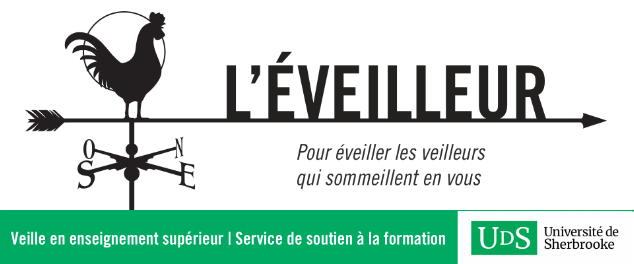Le doyen de la Faculté de médecine et de dentisterie de l’Université d’Alberta, Philip Baker, a repris mot pour mot le discours de son homologue de l’Université de Stanford sans jamais mentionné sa source.
Découvert par une recherche sur Internet, ce plagiat a fait l’objet d’une enquête interne et a entraîné la démission de Baker de son poste de doyen mais pas celui de professeur. Dans un extrait de sa lettre d’excuses, publié par le magazine Alberta Views, Baker mentionne qu’il s’est excusé auprès du doyen de Stanford, qui a accepté ses excuses en se disant flatté que son discours ait été repris. Dans ce même extrait, Baker dit que son discours était destiné à un auditoire restreint (private).
Cette histoire a bouleversé la communauté universitaire, en particulier les étudiants, qui avaient été très touchés par le contenu du discours à leur collation des grades… C’était en juin dernier (2011) et l’article « U of Alberta dean stole speech : med students » rend bien compte des sentiments des étudiants face au geste de leur doyen.
En novembre 2011, l’attention est tournée vers les professeurs qui plagient. Ainsi, Macleans publie un article dans lequel sont cités différents cas de plagiat professoral et leur traitement.
That’s not to say we’re facing a rash of fraudulent professors, says Julia Christensen Hughes, an organizational behaviour expert at the University of Guelph who co-authored the 2007 report on student integrity. But it’s time for someone to quantify the problem, she says. “There are pressures, and it would be interesting to see to what extent those pressures are the same on faculty as they are on students,” says Hughes, now the dean of Guelph’s College of Management and Economics. As it stands, most of the newly created “academic integrity” offices in schools across the continent monitor only student transgressions. When scandals involving faculty members flare up, many institutions take the U of A route, lowering a blanket of silence in hopes of smothering the controversy.
Irving Hexham, a University of Calgary professor who has written on academic plagiarism, chalks this up to the self-preservation instinct. “It’s a desire to protect the reputation of the institution, to protect their government-funded research grants,” he says. The result is a double standard corrosive to both the university and society, adds Hexham. “It sends a message to students that, if you’re bold enough, you can get away with it. People who plagiarize can use their wrongdoing to get into positions of power. I believe that academic frauds surround themselves with people who aren’t very competent, because competent people would expose them.”
Baker a conservé son poste de professeur à l’Université d’Alberta. S’il s’était agi d’un étudiant, aurait-il gardé son statut d’étudiant ?
Sources :
« Need a Speech, Stat », Alberta Views, Septembre 2011. p. 24. (papier seulement)
Gillis, Charlie, « When professors plagiarize », Macleans.ca, 8 novembre, 2011.
« U of Alberta dean stole speech : med students », CBCnews, 12 juin 2011.




